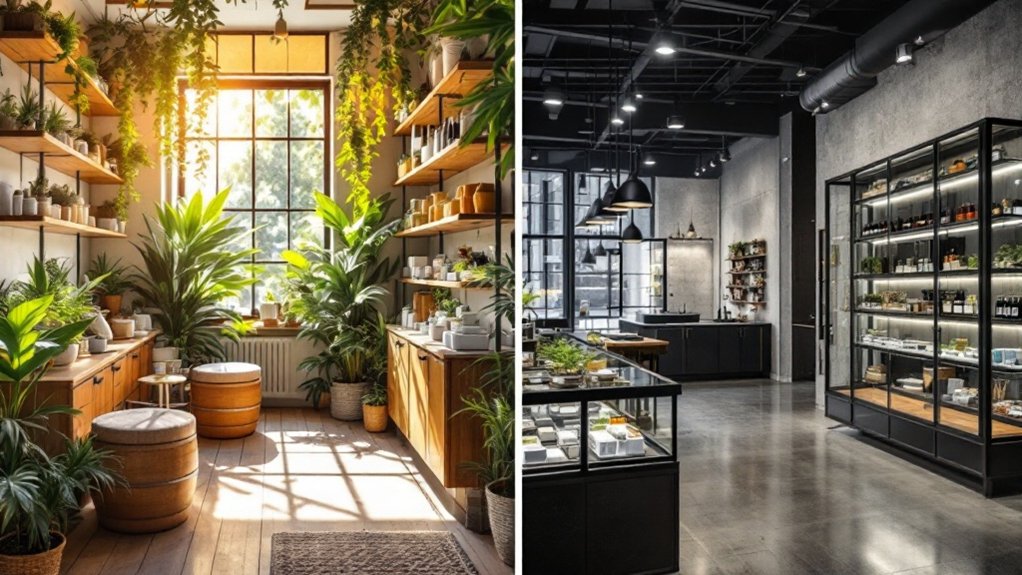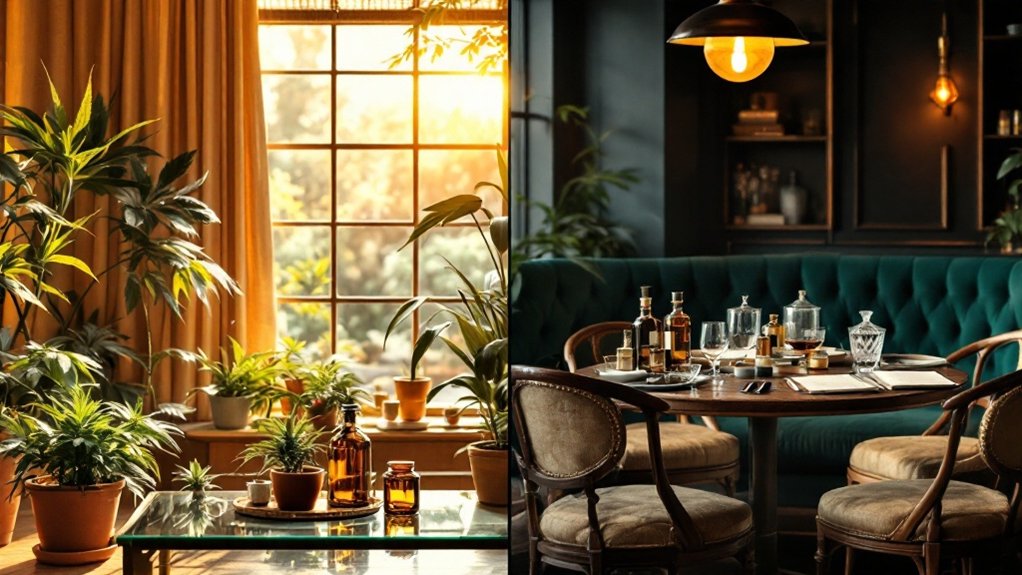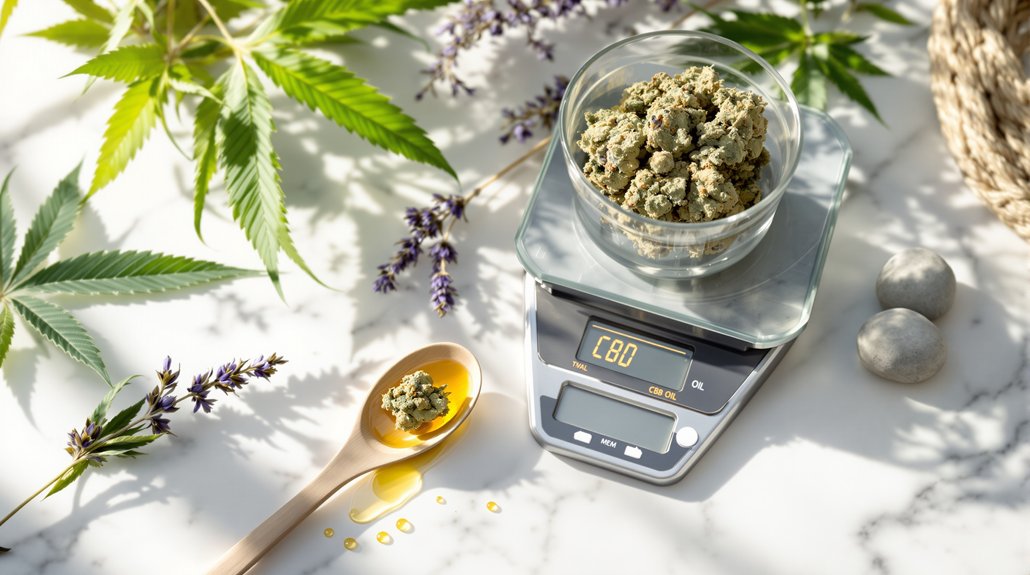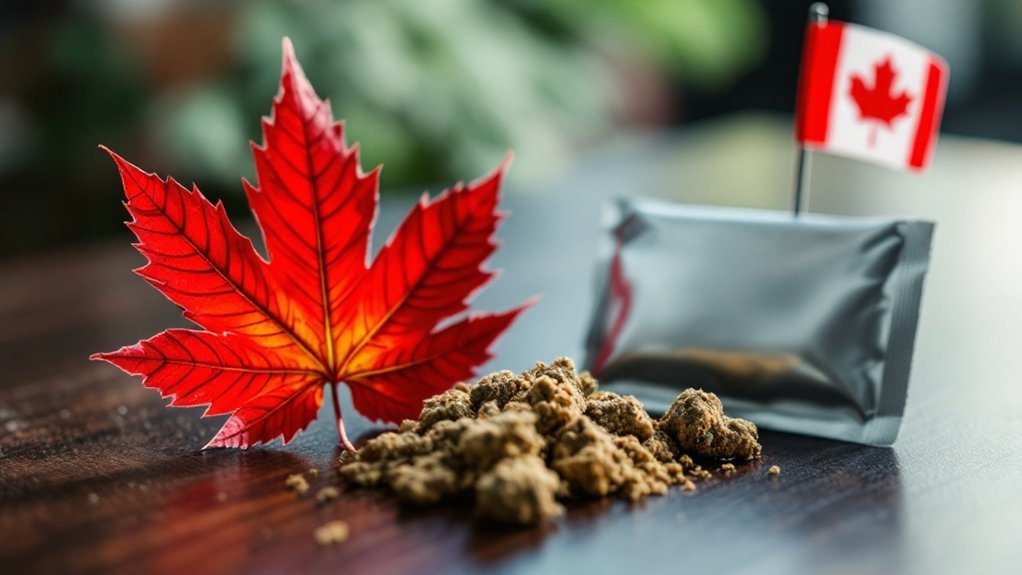American cannabis tourism has evolved into two distinct coastal personalities, each reflecting deeper cultural values that extend far beyond simple recreational use. California’s sun-soaked dispensaries offer yoga sessions with pre-rolls and farm-to-table dining experiences paired with artisanal edibles. Meanwhile, New York’s sleek consumption lounges mirror Manhattan’s cocktail culture with sommelier-guided tastings and jazz soundtracks. The contrast runs deeper than aesthetics, it represents fundamentally different philosophies about how cannabis should integrate into American leisure culture, setting the stage for a fascinating regional competition.
California’s Wellness-Driven Cannabis Culture: From Farm Tours to Celebrity Dispensaries

While East Coast cannabis markets emphasize medical applications and regulatory compliance, California has carved out a distinctly different niche by positioning cannabis as the cornerstone of luxury wellness tourism.
The Golden State’s approach transforms cannabis consumption into immersive experiences that blend relaxation, education, and celebrity culture.
Cannabis wellness retreats throughout scenic California settings integrate yoga, meditation, and holistic therapies with consumption experiences.
Farm-to-table tours in the Emerald Triangle offer behind-the-scenes cultivation education, highlighting sustainable practices and terpene genetics. Visitors sample products directly from source while learning seed-to-sale processes.
Celebrity-backed dispensaries amplify this tourism model considerably. Jay-Z’s The Parent Company, Snoop Dogg’s ventures, and Seth Rogen’s Houseplant leverage star power to create destination retail experiences.
These establishments host exclusive events and offer limited-edition collaborations that draw tourists nationwide. California’s cooking classes featuring cannabis-infused cuisine showcase diverse flavor profiles and culinary innovation. The market’s impressive growth rate of 16.9% CAGR demonstrates the strong consumer interest in these innovative cannabis experiences. The recent legalization of on-site consumption lounges in 2024 will further enhance California’s cannabis tourism appeal by allowing visitors to enjoy products in dedicated social spaces starting in 2025.
East Coast Sophistication: Luxury Lounges and Urban Cannabis Experiences
California embraces outdoor wellness retreats and farm tours, while the East Coast is redefining cannabis tourism through sophisticated urban lounges that mirror upscale cocktail bars and private social clubs.
New Jersey leads this transformation as the first East Coast state to open licensed recreational cannabis lounges, with four dispensaries authorized for on-site consumption as of July 2025.
Atlantic City’s premium venues showcase “bougie booth seating” and high-end vaporizers like the $500 Volcano, creating experiences that rival traditional hospitality attractions.
These lounges function as social hubs featuring curated events including comedy nights and sports watch parties. The finished basement motif provides relaxed intimacy while other venues mimic upscale cocktail lounges. Unlike traditional bars, these venues maintain responsible consumption policies by refusing entry to guests who appear intoxicated. Patrons must be 21 years or older and present photo identification for entry to access these exclusive cannabis experiences.
Most East Coast establishments operate as BYOC lounges, allowing customers to bring their own cannabis products while offering consumption equipment on-site.
All initial operators are minority-owned, woman-owned, or disabled veteran-owned businesses, emphasizing diversity in this emerging market.
Market Dynamics and Economic Impact: Growth Patterns Across Coastal Markets

As legalization spreads across state lines, cannabis tourism has evolved from a niche market into a $3.2 billion industry that’s reshaping travel patterns along both American coasts.
California dominates current market share through established dispensary ecosystems and wellness-focused experiences, while East Coast markets are posting faster growth rates as regulatory frameworks stabilize.
East Coast cannabis markets are surging past California’s established dominance as streamlined regulations unlock explosive regional growth potential.
The numbers tell a compelling story. Global cannabis tourism projects reaching $25.7 billion by 2030, with the 25-44 age demographic driving a 14.9% compound annual growth rate.
This surge creates significant revenue streams for hospitality sectors through cannabis partnership packages and increased bookings in legal consumption areas. The industry’s growth has sparked the emergence of social consumption lounges and cannabis cafes, creating new social spaces for tourists to experience cannabis culture.
East Coast markets are particularly remarkable, smaller but rapidly expanding as pent-up demand meets sophisticated urban offerings, positioning these regions to capture increased national market share. New York’s ambitious plan to expand to 625 dispensaries by 2025 signals the East Coast’s commitment to building robust cannabis infrastructure.
Regulatory Landscapes Shaping Tourist Access and Experience Quality
Regulatory frameworks fundamentally determine whether cannabis tourists can legally light up in a cozy lounge or must settle for purchasing products they can only consume in private.
California’s full local authority model creates a patchwork of experiences, tourists might find bustling cannabis cafes in Los Angeles while facing complete retail bans just miles away.
AB1775’s January 2025 rollout transforms licensed retailers into entertainment venues serving food and hosting live music, fundamentally creating cannabis speakeasies.
East Coast states maintain stricter state-level controls with cautious local opt-in frameworks.
New York, Massachusetts, and New Jersey offer limited on-site consumption options, forcing tourists toward private events or basic retail experiences.
California’s enhanced 2025 compliance requirements demand rigorous surveillance and GPS tracking, raising operational standards while East Coast regulations remain tentative for hospitality venues that barely exist. These venues must now maintain continuous recording for at least 90 days with high-definition systems monitoring all operational areas. The state’s lower cannabis taxes in 2025 make these premium tourism experiences more accessible to visitors seeking California’s cannabis culture.










